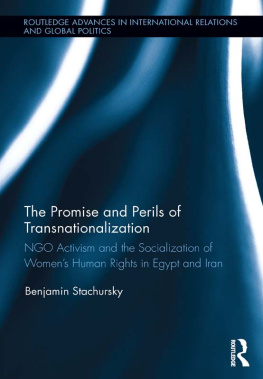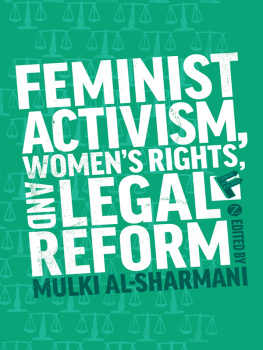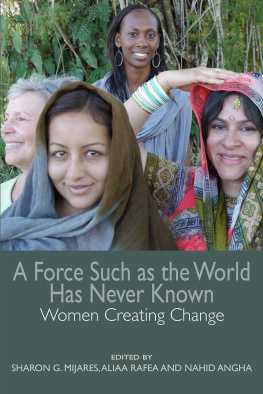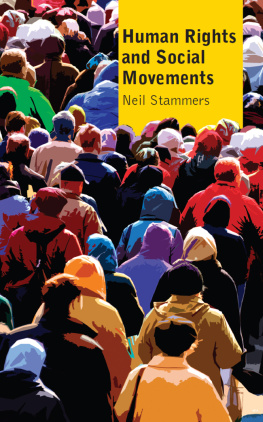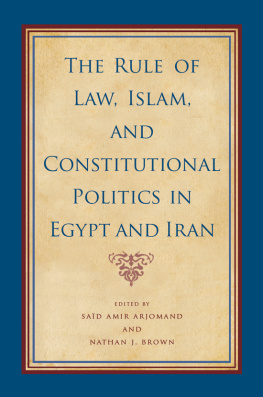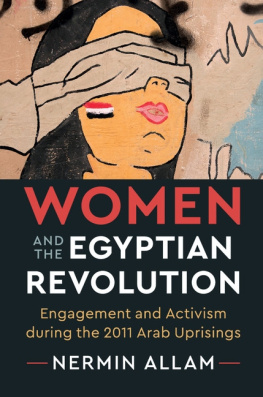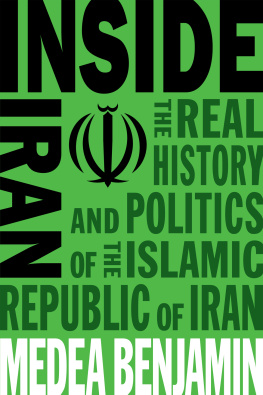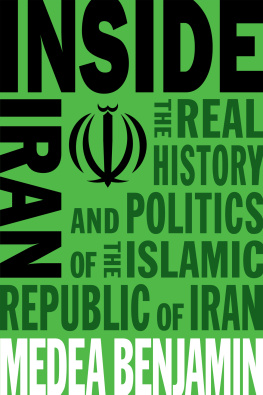This is a superb study about the dynamics at work in the translation ofglobal norms. Stachursky focuses on women's rights as a set of norms that requires far more than state socialization to make a real life difference, andhe picks the particularly tough cases of Egypt and Iran in which he traces women's rights activism. His results help us understand the complexities ofprofound societal change and reveal the various roles, both enabling and constraining, that transnationalism may play in this endeavor.
Susanne Zwingel, SUNY Potsdam
The book's interdisciplinary approach to international relations andtransnationalism, which incorporates insights from political science, law, sociology, and gender studies, provides an important corrective to the internationalrelations field which has traditionally focused on state actors. By examining the crucial role of non-state actors in the international systemand their transnational practices, such as women's human rights NGOs, Benjamin Stachursky highlights the challenges of these NGOs to not onlylobby state institutions but the necessary yet difficult task of targeting the larger society in order to change societal and cultural norms that preventgender equality.
Helen Rizzo, The American University in Cairo
The Promise and Perils of Transnationalisation
To date, most constructivist international relations studies have characterized the influence of transnationalism on domestic forms of activism as uniformly positive. In particular, transnational interactions are viewed as positive factors for the development and daily impact of gender activism.
Benjamin Stachursky's book questions the unvarying positive view of transnationalism on domestic forms of activism, arguing for a more nuanced analysis that permits an understanding of the enabling and restricting effects of transnationalism. Stachursky also challenges the dominant view of civil society as normatively homogeneous by illustrating the complex relationships and conflicts that exist between nongovernmental organizations (NGOs) and other civil society representatives. He grounds his theoretical arguments with a comparative case study on women's rights activism in Egypt and Iran, which uses semistructured interviews with women's rights activists in the two countries and analysis of documentation by local political and societal actors. Looking at the period from the mid-1980s up to present developments such as the Arab Spring and the Green Movement, Stachursky analyzes the emergence and development of NGO activism in Egypt and Iran; the social, political, and legal context of NGO activism; and key domestic debates on the impact and legitimacy of the actors operating in women's rights activism.
By closely examining the ambivalent relationship between transnationalism and human rights organizations, Stachursky proves that transnationalization has both enabling and constraining effects on the domestic legitimacy of women's rights activists and on their ability to create meaningful social and political change.
Benjamin Stachursky is a consultant for human rights and gender issues in the field of development cooperation and a lecturer in international relations at the University of Potsdam.
Routledge Advances in International Relations and Global Politics
For a full list of titles in this series, please visit www.routledge.com
The Securitization of Humanitarian Migration
Digging moats and sinking boats
Scott D. Watson
Mediation in the Asia-Pacific Region
Transforming conflicts and building peace
Edited by Dale Bagshaw and Elisabeth Porter
United Nations Reform
Heading North or South?
Spencer Zifcak
New Norms and Knowledge in World Politics
Protecting people, intellectual property and the environment
Preslava Stoeva
Power, Resistance and Conflict in the Contemporary World
Social movements, networks and hierarchies
Athina Karatzogianni and Andrew Robinson
World-Regional Social Policy and Global Governance
New research and policy agendas in Africa, Asia, Europe and Latin America
Edited by Bob Deacon, Maria Cristina Macovei, Luk Van Langenhove and Nicola Yeates
International Relations Theory and Philosophy
Interpretive dialogues
Edited by Cerwyn Moore and Chris Farrands
Superpower Rivalry and Conflict
The long shadow of the cold war on the twenty-first century
Edited by Chandra Chari
Coping and Conformity in World Politics
Hugh C. Dyer
Defining and Defying Organized Crime
Discourse, perception and reality
Edited by Felia Allum, Francesca Longo, Daniela Irrera and Panos A. Kostakos
Federalism in Asia
India, Pakistan and Malaysia
Harihar Bhattacharyya
The World Bank and HIV/AIDS
Setting a global agenda
Sophie Harman
The War on Terror and the Growth of Executive Power?
A comparative analysis
Edited by John E. Owens and Riccardo Pelizzo
The Contested Politics of Mobility
Borderzones and irregularity
Edited by Vicki Squires
Human Security, Law and the Prevention of Terrorism
Andrej Zwitter
Multilayered Migration Governance
The promise of partnership
Edited by Rahel Kunz, Sandra Lavenex and Marion Panizzon
Role Theory in International Relations
Approaches and analyses
Edited by Sebastian Harnisch, Cornelia Frank and Hanns W. Maull
Issue Salience in International Relations
Edited by Kai Oppermann and Henrike Viehrig
Corporate Risk and National Security Redefined
Karen Lund Petersen
Interrogating Democracy in World Politics
Edited by Joe Hoover, Meera Sabaratnam and Laust Schouenborg
Globalizing Resistance against War
Theories of resistance and the new anti-war movement
Tiina Seppl
The Politics of Self-Determination
Beyond the decolonisation process
Kristina Roepstorff
Sovereignty and the Responsibility to Protect
The power of norms and the norms of the powerful
Theresa Reinold
Anglo-American Relations
Contemporary perspectives
Edited by Alan P. Dobson and Steve Marsh
The Emerging Politics of Antarctica
Edited by Anne-Marie Brady
Genocide, Ethnonationalism, and the United Nations
Exploring the causes of mass killing since 1945
Hannibal Travis
Caribbean Sovereignty, Development and Democracy in an Age of Globalization
Edited by Linden Lewis
Rethinking Foreign Policy
Edited by Fredrik Bynander and Stefano Guzzini
The Promise and Perils of Transnationalization
NGO activism and the socialization of women's human rights in Egypt and Iran
Benjamin Stachursky

